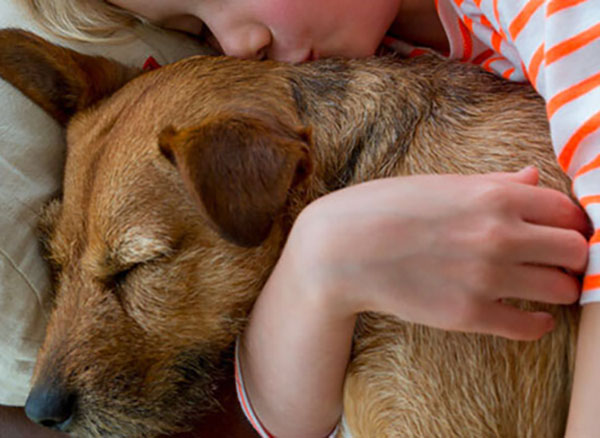We know that every pet's journey is unique.
In-home euthanasia services.
- Unhurried appointment with a personal experience and the opportunity to discuss questions or concerns
- Paw print memorial and fur clipping included
- Plus trip charge - $25
- Private cremation: your pet is cremated privately and their ashes and paw print memorial will be shipped to your home - $410
- Communal cremation: your pet is cremated with other pets and their ashes are respectfully scattered - $195
What can I expect?
Meet our veterinarians.
Zoe Xava
DVMDr. Zoe Xava feels that it is an absolute honor and privilege to be able to help pets transition at home, and to support people with their decision. She appreciates getting to meet so many amazing animals and people and finds it very rewarding to be able to reduce stress and anxiety surrounding the transition process.
- Doctor of Veterinary Medicine, Colorado State University, Fort Collins
Leigh-Anne Lariviere
DVMEnd of life care can be very emotional and stressful. Dr. Leigh-Anne Lariviere feels strongly that helping families with this process for their pets reduces anxiety and makes a very hard situation a little less difficult for everyone involved. She shares “I am so grateful to be part of this compassionate team to work with people and enable their beloved pets to pass tranquilly at home.”
- Doctor of Veterinary Medicine, Texas A&M University, College Station
- Bachelor of Science, Biomedical Science, Texas A&M University, College Station
Testimonials from our clients.
"I would highly recommend using Pet Hospice. I had an amazing team to work with and they helped make a tough time, just a little bit less tough."
"They provided so much comfort during an unexpectedly traumatic time. Everyone was so respectful, compassionate, sensitive, and thoughtful to our needs ... even the ones we didn't realize we had."
"Since all the care is based out of home, Bruce was much more comfortable and relaxed. We were able to put stress to side and get him the best care possible."
Frequently asked questions.
You can feed your pet or offer favorite treats if he or she is eating.
On rare occasions, nausea can happen following sedation, but this is generally due to either your pet’s underlying disease process or sensitivity to medication, not the fact that you let your pet enjoy a favorite treat or meal.
The only medications we recommend you give your pet on the day of euthanasia are “comfort medications” such as pain or anti-nausea medications, if you are giving them, and they will not interfere with the euthanasia process.
Children should ideally have the opportunity to say goodbye to their companion. In our experience, children over five years old are amazingly present and engaged, and will often impress with their understanding and acceptance.
Of course, this decision is ultimately the choice of the parent. Some parents elect to have children at home but in a different room for the actual passing. This helps ensure they are insulated from the parent’s emotions (which is usually harder for them to deal with than the actual loss of the pet), but still allow them to say their goodbyes after the passing, before the pet leaves the home.
For children younger than five, they seem to be unsure about what’s going on and are, again, more upset by the parent’s emotions than by the loss of the pet. Still, we believe open communication about the loss is usually the best policy even for this age.
Upon request, our care coordinators can email you a helpful resource from The Ohio State University that shares how to best help children cope with serious illness or death of a pet.
- We will care for every possible need so that your only focus is being with your pet.
- We provide soft blankets, “potty pads,” and arrange for a paw print to be made by the crematorium.
- We care for all of your pet’s cremation and transportation arrangements, and provide a stretcher that allows for the gentle movement of pets from their home to our vehicle.
- We notify your veterinarian(s) so that you do not need to make that difficult call.
We understand that new people can be intimidating and that some pets experience “stranger danger.”
In the situation where a pet may be extra nervous, or potentially prone to biting, please let our care coordinators know. We will work with you to develop a specialized approach, helping to remove any anxiety or fear and in turn making these moments as stress-free as possible for both you and your pet.
In our experience, we find other household pets absolutely need this time to say goodbye, just like any family member.
Most pets seem to understand what is going on, and will sit quietly and attentively, honoring the process much in the same way as you do. If you feel your pet may be disruptive to the process, they can be placed in another room and allowed to say goodbye once their friend has passed.
Being able to see and smell their friend allows for closure, which is important in the grieving process. Following the loss of their friend, they may act depressed for a day or so after, but generally return to their normal behaviors and routines following this time. We offer as much time as needed for all members of the family to say their goodbyes.

